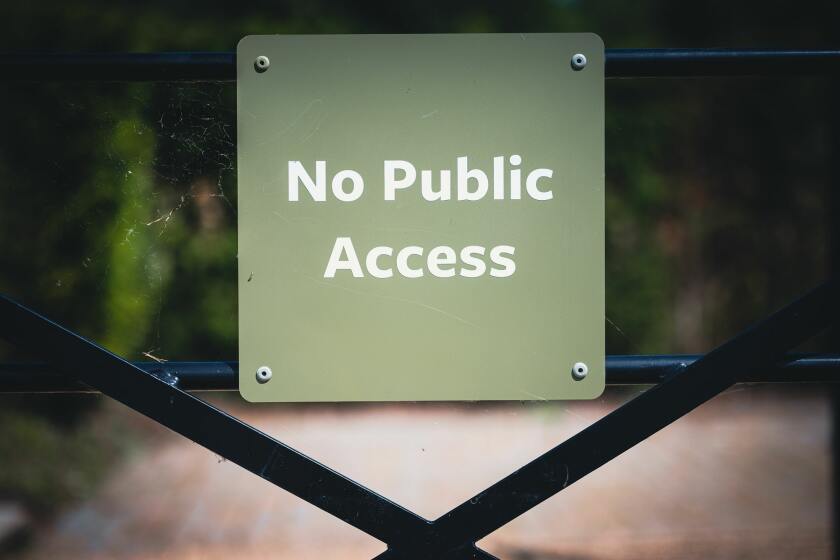There’s an old saying: “Not only must justice be done; it must also be seen to be done.”
The phrase, from the 1942 judgment in Rex v Sussex Justices, was coined by Lord Gordon Hewart, who was then lord chief justice of England.
The details of the case are not so relevant here, but the underlying principle of the phrase – that open justice is of vital importance – has been at the heart of the British justice system for years.
Many countries around the world adopt a similar mantra when it comes to justice.
Speaking of which, the Unified Patent Court (UPC), one of the newest (and most talked about) legal systems, should take note.
Since its much-heralded arrival on June 1 last year, the court has been engulfed in unwelcome distractions regarding its approach to transparency.
A brief recap.
Behind closed doors
The UPC, at least so far, has been reluctant to allow interested members of the public to access court documents.
On February 8, this came to the fore again as the UPC’s Court of Appeal (CoA) said members of the public cannot request access to court documents without first appointing a professional representative.
The judgment was part of the ongoing Ocado v Autostore case, in which tensions around transparency continue to boil over despite the wider patent infringement dispute having been settled.
In practice, this means that members of the public, including journalists and third-party lawyers, must be professionally represented when they apply for access to documents. Even then there is no guarantee they will get hold of them.
For a new European system, particularly one that has been subject to endless scrutiny and discussion in the intellectual property profession, restricting access to court documents is madness.
Many stakeholders have spent decades helping to shape the UPC.
Quite simply, they will need access to documents to see how cases are argued and to assess their chances of success and whether it is worth bringing a case.
The long-term stability of the court will depend upon maximum engagement with all its processes – and that includes analysing existing cases.
For stakeholders to hear that large swathes of court filings are to be kept secret must be a bitter pill to swallow.
Take the UK for example.
In courts in England and Wales, it is commonplace for journalists (and, sometimes, interested parties) to request skeleton arguments from both sides in a dispute.
Barring the odd exception, the courts and lawyers from both sides are generally happy to provide these.
I appreciate that the elephant in the room is the UK left the UPC system, so plenty of people may (entirely fairly) ask why the UK’s position is relevant.
But I still think it's important to keep in mind that one of the most established legal systems has (or at least tries hard to have) open justice at its core.
I understand that not all European countries have open justice so engrained into their systems, but to me, it is crucial that the UPC project – for which early success is so vital – is seen to be fair and transparent.
A heavy burden?
According to Judges Rian Kalden, Ingeborg Simonsson, and Patricia Rombach, the CoA panel that ruled on the Ocado dispute, the requirement for members of the public to appoint a representative to help them obtain documents is not “unnecessarily burdensome”.
I disagree.
Many will simply see this as too expensive or will be unsure how to go about it.
Sure, some lawyers may develop low-cost ‘UPC access’ services as a new business opportunity or even represent parties seeking to obtain documents pro bono. However, plenty of those who want simple access to documents will be deterred by the prospect of appointing a lawyer.
Of course, there will be situations where confidentiality is key and where documents must be kept private – that is the case everywhere.
But for standard court filings, the default position should always be to grant access.
To add fuel to the fire, the UPC was also late in publishing the judgment on its website.
For a time, the judgment was only available to read because it had been uploaded to LinkedIn on February 9 by lawyers at Swedish firm Sandart & Partners, which is acting for Ocado alongside UK firm Powell Gilbert.
It was published on the UPC website several days later, on February 14.
At a time when transparency concerns are being rightly voiced, the UPC should have at least ensured that the judgment explaining its reasonings was readily available.
Let’s not forget that the wider Ocado appeal surrounds the requirement for a member of the public to give a "reasoned request" to access documents.
Much will depend on how the court interprets “reasoned request”.
For the sake of a trustworthy and efficiently run system, I certainly hope it’s a low bar to clear and that a mere general interest is sufficient.
Otherwise, justice may – or may not – be being done, and we won’t be able to see it.











